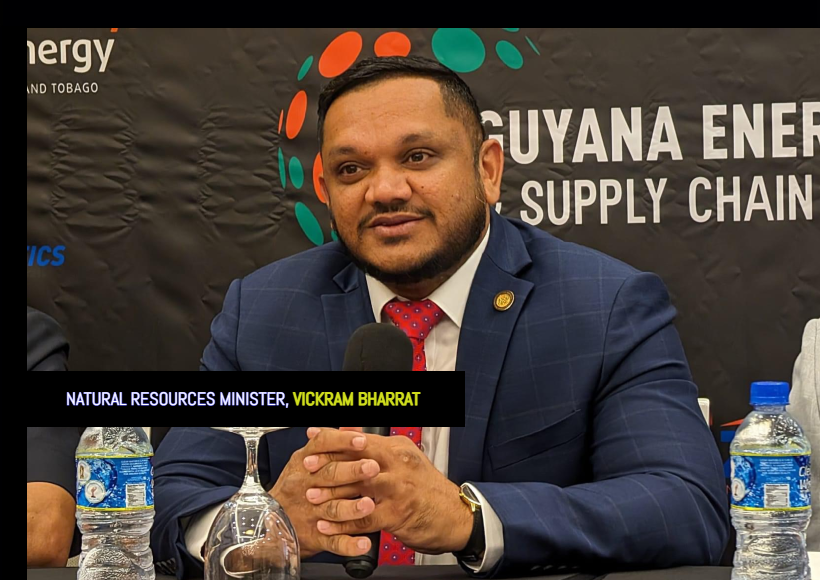During his recent address at the official launch of the Guyana Energy Conference and Supply Chain Expo 2025, Minister of Natural Resources, Vickram Bharrat underscored the importance of Guyana’s depletion policy, which prioritizes rapid oil extraction.
Bharrat explained that this strategy is driven by the need to maximize the economic benefits of the country’s oil resources given that there is a limited timeframe for doing so.
Highlighting the strategic rationale behind the policy, he stated, “Our depletion policy is to get the oil out as fast as possible, and to use the resources to develop our country, to build out the other sectors.” The minister also articulated that the policy is not merely about exploiting resources but is aimed at leveraging oil revenues to advance broader national development goals.
Bharrat explained that Guyana’s approach to rapid oil extraction is driven by the global shift away from fossil fuels and the growing pressure on oil-producing countries to meet climate change goals. He noted that discovering oil in 2015 placed Guyana in a challenging position, as the world was already moving towards reducing emissions. This situation, he emphasized, makes it crucial for the country to efficiently extract and use its oil resources within the limited time available.
He stated, “The world is transitioning away from fossil fuels, whether we like it or not. We are getting the oil out as fast as possible to use the resources to develop our country… because oil and gas don’t last forever,” he added.
The minister also underscored that while oil is a significant asset, the country must not become overly reliant on it. Bharrat also highlighted the government’s commitment to strengthening other critical sectors such as agriculture, mining, and forestry. “Agriculture, mining, and forestry are the traditional sectors that have contributed significantly to our Gross Domestic Product (GDP) over the years,” Bharrat said. He noted that these sectors will continue to be vital in ensuring long-term economic stability. “We must focus on these areas to create a balanced and resilient economy,” he added.
In discussing the future of these sectors, Bharrat remarked, “We want to be the breadbasket of the region,” noting that the government’s ambition to enhance agricultural production not just for domestic needs, but also for export. Additionally, he acknowledged the ongoing efforts to modernize and expand the mining industry, saying, “Mining will remain a key contributor to our GDP, but we are committed to doing so in a sustainable way.”
Similarly, Bharrat emphasized, “Our forestry sector is not just about timber; it’s also about managing our resources in a way that aligns with our environmental goals.”
He also noted that while some might criticize this rapid extraction approach, it is a calculated strategy aimed at preventing the country from being left with untapped resources in the face of declining global demand for fossil fuels.













